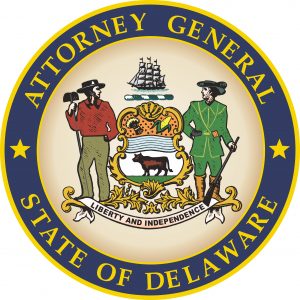WILMINGTON – Good health is more than simply a visit to the doctor. Only about 10 percent of a person’s health status is impacted by traditional medical care. Health is also directly impacted by where people live, work, play, and pray. To empower communities to address these larger environmental issues, the Division of Public Health (DPH) and members of the University of Delaware’s School of Public Policy & Administration released today the Health Equity Guide for Public Health Practitioners and Partners.
Poverty, homelessness, crime, hunger, discrimination, unintended pregnancy, and education attainment can be linked to a risk of elevated rates of disease, disability, injury, and premature death. Since such factors extend far beyond traditional public health efforts, DPH hopes the Health Equity Guide will catalyze strong partnerships between public health, health care, businesses, schools, religious organizations, and lawmakers. The document shares evidence-based and promising strategies, and provides numerous references and web links for additional information.
DPH is working with many community leaders, non-profit organizations, other state agencies, and stakeholders to address health equity within our state and improve overall health for Delawareans. By improving environmental and social conditions, there is less risk of disease, disability, and injury. Many individuals working outside of the traditional health sector may not even realize the impact their work has on health and health equity. By raising awareness of the social determinants of health and sharing strategies and lessons learned for promoting healthier living and working conditions, we can mobilize our collective capacity to foster optimal health for all Delawareans.
“Health inequities are historically entrenched and pervasive, but they are not insurmountable,” Department of Health and Social Services (DHSS) Secretary Rita Landgraf said. “We can be most effective by transforming our health care system’s focus on disease and treatment of the individual to one that focuses on prevention, health, and wellness of the population. And by working with those outside of the health care system to address persistent inequities and encourage them to consider a ‘health in all policies’ approach where the impact on decisions is weighed against potential negatives for human health.”
Research shows that individuals who have low incomes or are of color are more likely to have diabetes, suffer certain kinds of cancers and other serious chronic diseases, life expectancy is often lower, and disability rates are often higher. And Delaware’s black infant mortality rate was as high as 2.8 times that of the white rate for the most recent data available. Hispanic children in Delaware are four times as likely and non-Hispanic black children are nearly twice as likely to be in less than optimal health compared to non-Hispanic white children. The number of Delaware children age birth to 5 years living in poverty (a factor directly linked to poorer health outcomes, climbed from 12,481 (17 percent) in 2008-2010 to 16,417 (24.7 percent) in 2012-2014, according to Kids Count.
“We have a duty to ensure equity in health because health is a public good necessary for a well-functioning society,” said DPH Director Dr. Karyl Rattay. “Everyone – regardless of race, religion, political belief, ability, sexual orientation and economic or social condition – has the right to a standard of living adequate for health and necessary social services. All sectors can work to dispel persistent health inequities.”
“I can vouch for the importance of teaching Delawareans about the connectivity between place and their health, and especially how to empower them to improve their communities,” added state Senator Margaret Rose Henry. “The guide can help community leaders, policymakers and community residents become familiar with the impact of underlying social and environmental conditions that are detrimental to the health of individuals and groups.”
The Health Equity Guide will be presented to a Wilmington City Council Committee later today. “It is vital that we reach the most vulnerable populations with this important information,” said Wilmington City Council Member Bob Williams, who is also a registered nurse. “The DHSS Health Equity Guide can help improve social and environmental conditions while serving as an excellent blueprint for better health. As Chair of City Council’s Health, Aging and Disabilities Committee, I am pleased to join my City and State colleagues in highlighting the underlying causes of health inequities. This is a great step forward in promoting equal opportunities for health for all Wilmington residents.”
The event was hosted by St. Patrick’s Center in Wilmington at 107 East 14th St. St. Patrick’s Center Executive Director Joseph Hickey said, “The health equity challenges highlighted in the Guide are concentrated in the poorest areas of Delaware, and our center is located in the poorest area of the state. Fresh and healthy foods are not readily available in the neighborhood around St. Patrick’s Center. It is easier to buy liquor then lettuce.”
The Health Equity Guide is available at: http://www.dhss.delaware.gov/dhss/dph/mh/healthequityguide.html. For further information, call 302-744-4879.
Other contributors to the Health Equity Guide included, but are not limited to Christiana Care Health System, Delaware Greenways, Medical Society of Delaware, National Association of County and City Health Officials, Nemours Children’s Health System, and United Way of Delaware, among others.
Individuals seeking TTY services should call 7-1-1 or 800-232-5460. A person who is deaf, hard-of-hearing, deaf-blind, or speech-disabled can use a TTY to type his/her conversation to a relay operator, who then reads the typed conversation to a hearing person at the DPH call center.
Delaware Health and Social Services is committed to improving the quality of the lives of Delaware’s citizens by promoting health and well-being, fostering self-sufficiency, and protecting vulnerable populations. DPH, a division of DHSS, urges Delawareans to make healthier choices with the 5-2-1 Almost None campaign: eat 5 or more fruits and vegetables each day, have no more than 2 hours of recreational screen time each day (includes TV, computer, gaming), get 1 or more hours of physical activity each day, drink almost no sugary beverages
